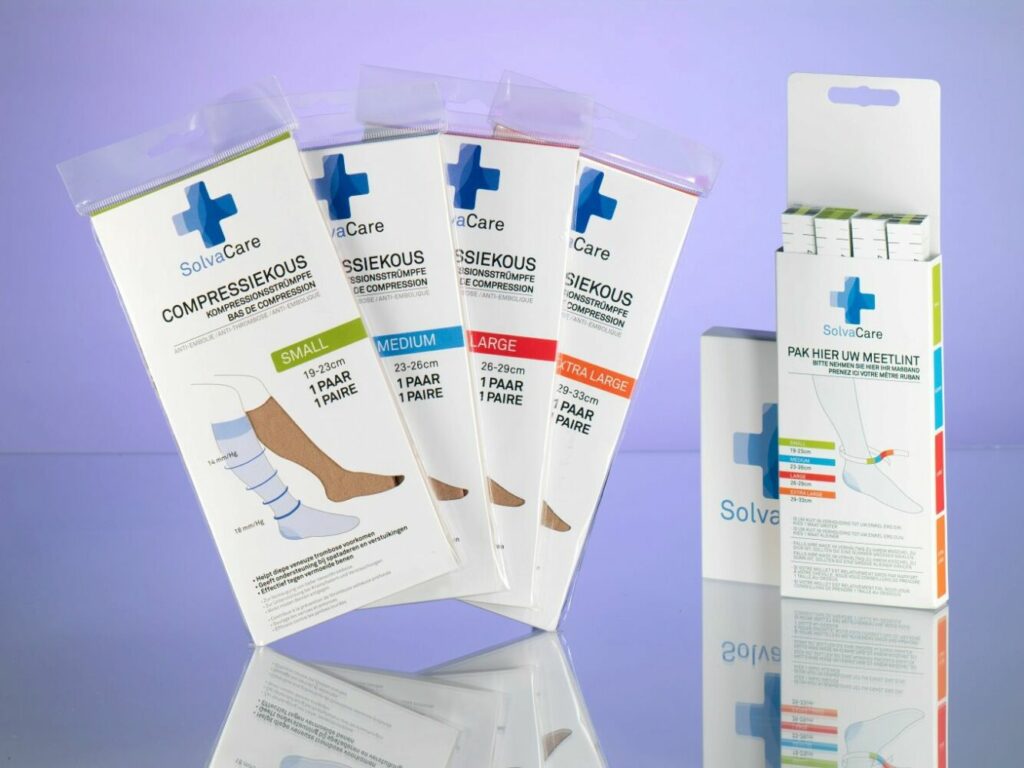Retention of fluid during pregnancy
Fluid accumulation or oedema is a known phenomenon when you are pregnant. It adds some extra kilos to the scale, but also causes swollen ankles, lower legs, hands and fingers. As long as your blood pressure stays low, fluid retention will do no real harm. It is annoying, though.

Visit our online store!
Free shipping throughout the Netherlands.
Your compression stockings delivered in two working days!
Progesterone
The pregnancy hormone progesterone is the culprit in this case too. The retention of fluid is necessary for the relaxation and stretching of body tissue. Fluid retention is not dangerous as long as your blood pressure stays low. Do you suffer from high blood pressure and/or severe headaches? This could indicate preeclampsia or HELLP syndrome. In that case, have your midwife check whether your urine contains protein. As your baby grows, the weight of your abdomen presses more and more on the blood vessels in your groin, which can further hinder blood circulation.
Complaints
Almost every pregnant woman suffers from swelling of feet, ankles and hands due to fluid retention. Your face can also swell up: people can tell from that ‘rounder face’ that you are pregnant. Your skin can feel tight from the tension. That does not feel comfortable. The accumulation of fluid around your joints can start to hurt. On average you will retain about 2 to 3 litres of extra fluid during your pregnancy, which converts into 2 to 3 kilos of extra weight on the scales. The quantity of fluid you retain depends on your disposition.
Towards the end of your pregnancy, fluid accumulation is often stronger. As soon as you have given birth, the fluid drains away fairly quickly.
Solution
SolvaCare compression stockings help against tired legs and swollen ankles. They improve blood circulation in the legs and help drain fluid. The counter-pressure keeps the accumulation of fluid within reasonable limits. The tension pain becomes less, making it easier to walk. They also help reduce the risk of pregnancy thrombosis.
